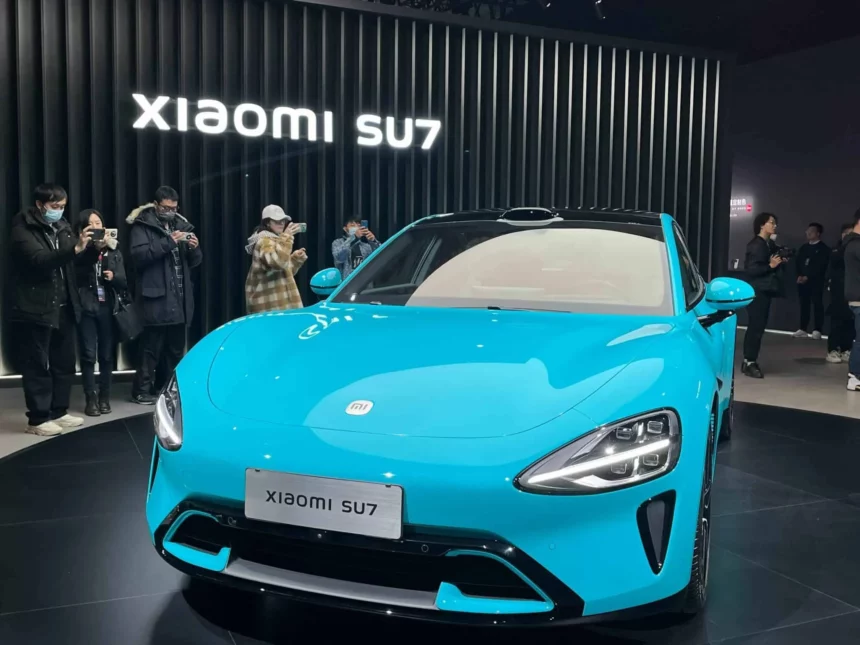Chinese tech giant Xiaomi is set to revolutionize the automotive industry with its entry into the electric vehicle market. The company announced that it will begin deliveries of its first electric vehicle, the Xiaomi Speed Ultra 7 (SU7) sedan, this month.
Xiaomi revealed its ambitious plans through a post on Weibo, stating that 59 of its stores across 29 cities in China will start taking orders for the SU7 sedan. The official launch event is scheduled for March 28, Additionally, Xiaomi plans to initiate customer test drives starting March 25, allowing potential buyers to experience the innovative features of the SU7 firsthand.
“Xiaomi’s cars are going from zero to one in a very different growth stage and facing very different user expectations compared to when Xiaomi’s smartphones went from zero to one 14 years ago,” Lei said in a Weibo post on Tuesday.
“Xiaomi’s cars need to be different, and the most important aspect is smart technology.”
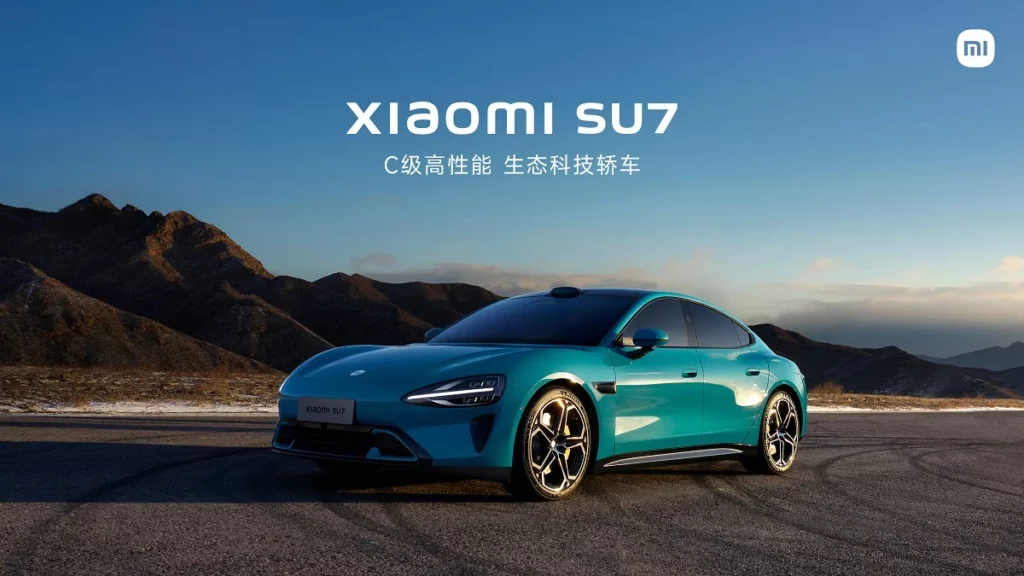
As Xiaomi gears up for the launch of its groundbreaking SU7 sedan, the company has received an overwhelming response from consumers, with over 100,000 reservations already secured. These reservations serve as a testament to the anticipation and excitement surrounding Xiaomi’s entry into the electric vehicle market.
The move comes at a time when China’s electric vehicle market is experiencing substantial growth, with sales climbing by 18% in the first two months of the year, closely trailing the 21% growth observed throughout 2023. As industry leader BYD initiates significant price reductions to attract consumers amid weakening domestic demand, Xiaomi’s entry injects fresh competition into the market.
During the unveiling of the SU7 in December, Xiaomi’s Chief Executive, Lei Jun, expressed the company’s aspirations to become one of the world’s top five automakers. Highlighting the technological prowess of the SU7, Jun claimed that its “super electric motor” technology surpasses the acceleration capabilities of leading EV manufacturers like Tesla and Porsche. The SU7 is built on Xiaomi’s Modena platform, boasting dimensions of 4997/1963/1455 mm (L/W/H) with a wheelbase of 3000 mm.
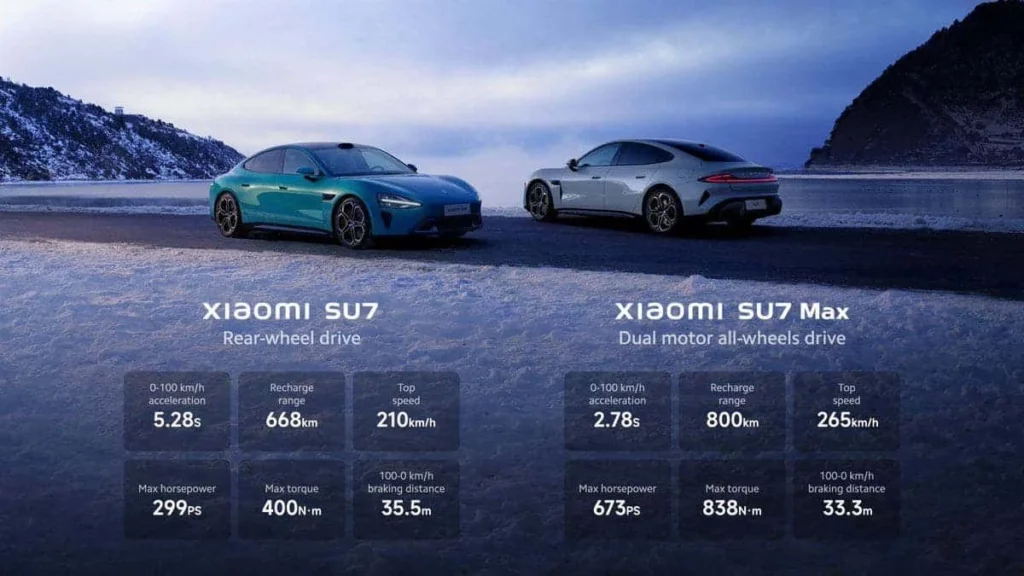
Analysts anticipate that the SU7’s integration with Xiaomi’s existing ecosystem, including smartphones and other electronic devices, will be a key selling point. Leveraging shared operating systems and smart technology, Xiaomi aims to capture the loyalty of its vast customer base. The SU7 features a spacious 105-liter frunk and 517 liters of boot space, catering to practical needs alongside technological advancements.
Production and Investment
Manufactured by a subsidiary of the state-owned automaker BAIC Group in Beijing, the SU7 will roll out from a factory with an annual capacity of 200,000 vehicles. Xiaomi has committed to investing $10 billion in the automotive sector over the next decade, signaling its long-term commitment to the EV market. The vehicle is powered by a Qilin NMC battery from CATL with a 101-kWh capacity, offering a maximum range of 800 km.
The employee said “The early production capacity is insufficient. There are many channels for paying deposits later, but how long it will take to deliver is the question.”
Xiaomi SU7 sedan Price
Known for its affordable products, Xiaomi aims to maintain its reputation with the SU7. Priced competitively, the SU7 is available in two models: the SU7 RWD priced at $35,200 and the SU7 AWD at $55,000. Positioned as a direct competitor to Tesla’s Model S, the SU7 boasts impressive features such as rapid acceleration and an 800V fast-charging system. Xiaomi’s aggressive pricing strategy aims to capture market share and establish itself as a formidable player in the EV segment.
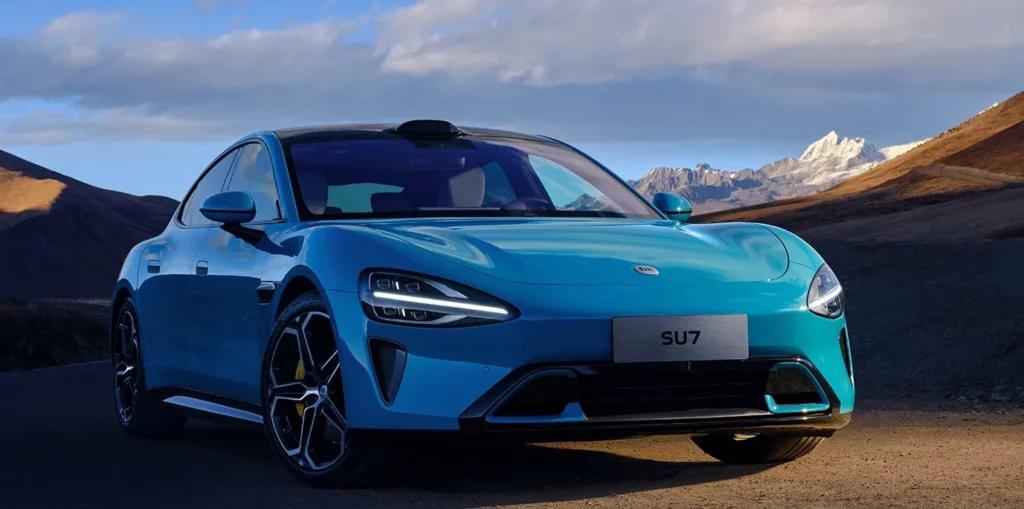
Interior Design and Features
| Feature | Specification |
|---|---|
| Platform | Xiaomi Modena |
| Dimensions (L/W/H) | 4997 mm / 1963 mm / 1455 mm |
| Wheelbase | 3000 mm |
| Frunk Capacity | 105 liters |
| Boot Space | 517 liters |
| Charging | Rapid 800V |
| Charging Time | 220 km of CLTC range in 5 minutes |
| Battery | Qilin NMC battery from CATL |
| Battery Capacity | 101 kWh |
| Maximum Range | 800 km |
| Power (AWD version) | 495 kW |
| Torque (AWD version) | 838 Nm |
| Acceleration (0-100 km/h) | 2.78 seconds |
| Top Speed | 265 km/h |
| Aerodynamics | Drag coefficient of 0.195 Cd (lowest among production vehicles) |
The SU7 showcases a driver-centric interior design, blending traditional physical elements with cutting-edge technology. Noteworthy features include a flat-bottomed steering wheel, tactile switches, and a horizontal center touchscreen. Additionally, advanced functions such as adaptive cruise control and parking assistance enhance the driving experience. The vehicle supports rapid 800V charging, enabling the addition of 220 km of CLTC range in just 5 minutes.
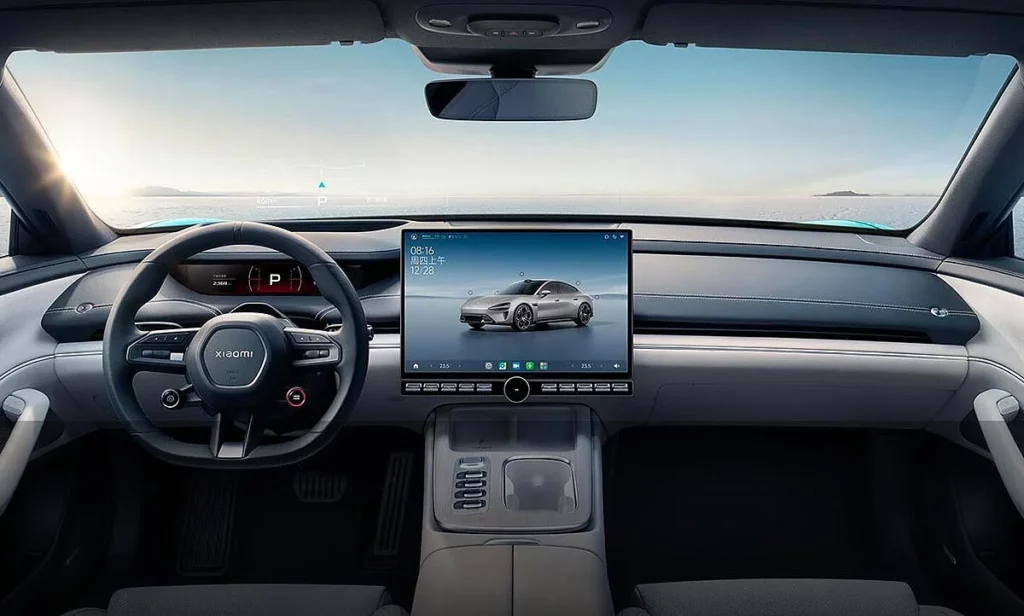
Power in the five-seat sedan will come from batteries made by one of two Chinese makers, depending on whether the car is single- or dual-motor, according to Bloomberg.
Sales Strategy and National Security Concerns
Xiaomi’s sales strategy includes a mix of directly managed stores and authorized sales and service partners. However, concerns over national security, particularly in the US, may impact the availability of the SU7 in certain markets. The US government’s probe into the potential risks posed by Chinese-made smart cars raises questions about data security and remote access. Despite these challenges, Xiaomi remains focused on delivering innovative and high-quality vehicles to consumers worldwide.
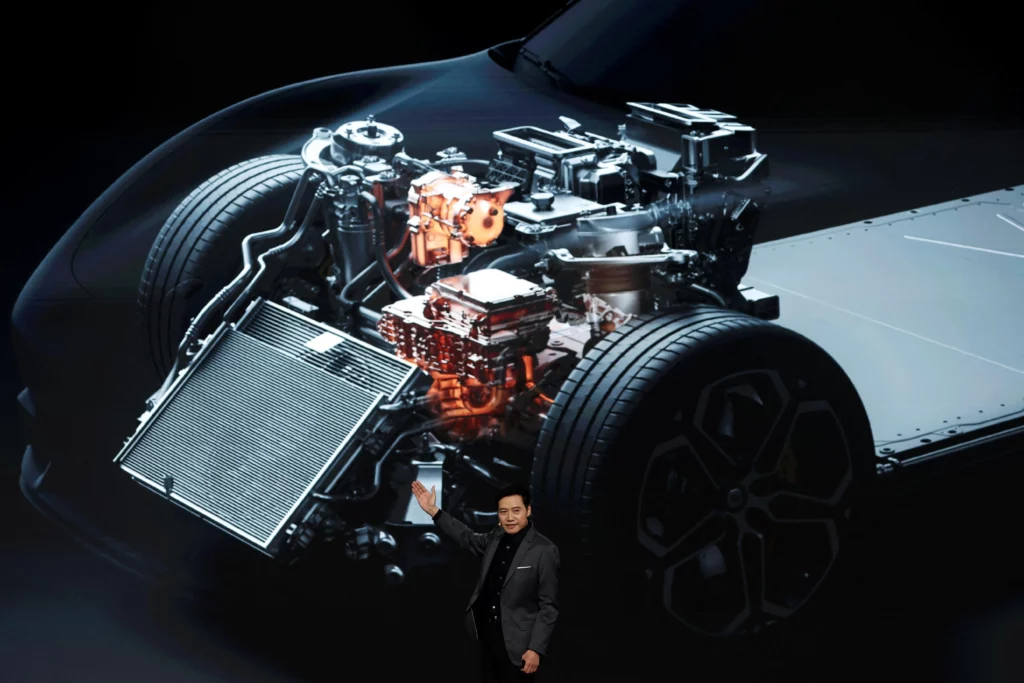
Employee Priority Access
In a move to prioritize its loyal employees, Xiaomi has granted them the right of first refusal for purchasing the SU7. This means that Xiaomi employees, as well as those working for companies affiliated with Xiaomi’s CEO Lei Jun, will have exclusive access to the first batch of SU7 cars. This initiative underscores Xiaomi’s commitment to its workforce and acknowledges their integral role in the company’s success.
Xiaomi’s SU7 sedan has captured the imagination of consumers and industry experts alike, with over 100,000 reservations already secured ahead of its official launch. By granting priority access to its employees and affiliated companies, Xiaomi reaffirms its commitment to fostering a supportive and inclusive ecosystem.
Xiaomi’s foray into the electric vehicle market with the SU7 sedan marks a significant milestone for the company and the automotive industry as a whole. With its blend of innovation, affordability, and technological integration, Xiaomi is poised to disrupt the market and carve out a prominent position in the rapidly evolving world of electric mobility.

